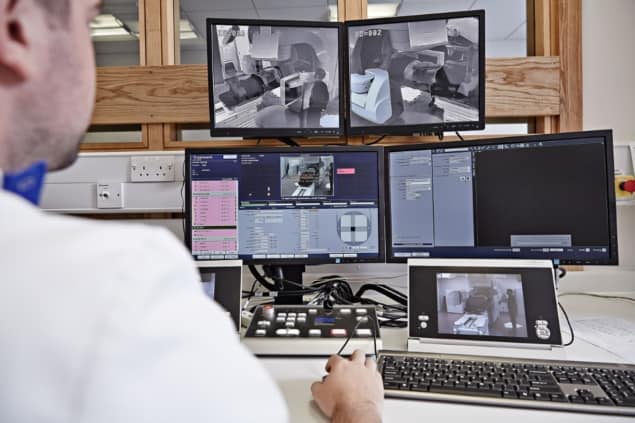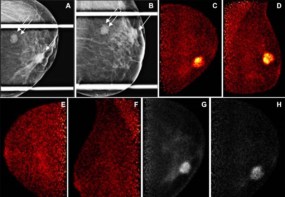
A £56 million research network announced today by Cancer Research UK will transform the UK into a global hub for radiotherapy research. The network – Cancer Research UK RadNet – will accelerate the development of advanced radiotherapy techniques, including FLASH radiotherapy, MR-Linac treatments, proton therapy, stereotactic radiotherapy and artificial intelligence.
RadNet will unite seven centres-of-excellence across the country. The University of Manchester, the University of Cambridge and the CRUK City of London Centre (a partnership between UCL, Queen Mary University of London, King’s College London the Francis Crick Institute) will receive funding for infrastructure and research programmes, including the formation of new research groups. The Universities of Glasgow, Leeds and Oxford and the Institute of Cancer Research, London/Royal Marsden will receive funding for infrastructure.
“Radiotherapy is a cornerstone of cancer medicine, with around three in 10 patients receiving it as part of their primary treatment,” says Michelle Mitchell, chief executive of Cancer Research UK. “The launch of our network marks a new era of radiotherapy research in the UK. Scientists will combine advances in our understanding of cancer biology with cutting-edge technology to make this treatment more precise and effective than ever before”.
The Cancer Research UK RadNet aims to improve cancer survival by optimizing and personalizing radiotherapy. The centres will develop new techniques for delivering radiotherapy and investigate new radiotherapy–drug combinations, with a focus on reducing long-term side effects and improving patients’ quality-of-life. Projects will include innovative research into:
- FLASH radiotherapy, in which pulses of high-dose of radiation are delivered in a fraction of a second. Early research suggests that FLASH has the potential to cause less damage to healthy tissue near the tumour than traditional radiotherapy.
- Proton therapy. The Christie NHS Foundation Trust in Manchester is the first NHS hospital to provide high-energy proton therapy; the second centre will open at University College London Hospitals NHS Foundation Trust next year. RadNet will support researchers across the country to optimize this new technology.
- Overcoming hypoxia. Hypoxic tumours are far less susceptible to radiotherapy. Scientists will develop better ways to identify hypoxic tumours and new treatments to oxygenate them, making radiotherapy much more effective.
- Cancer recurrence. Researchers will investigate why some cancers come back after radiotherapy by studying the role of cancer stem cells. These cells are remarkably resistant to radiation, and just a few remaining after treatment can cause a recurrence. For some patients, targeting stem cells could be the key to unlocking radiotherapy’s full potential.
- Drug development. Scientists will develop and test drugs, including immunotherapies, for use in combination with radiotherapy. They will also study how tumours can repair DNA damage caused by radiotherapy and use the latest gene-editing technology to develop drugs that interfere with this process.
- Artificial intelligence. RadNet researchers will use AI to design personalized treatment plans based on data from patients’ scans. This could improve radiotherapy accuracy and provide treatment options for patients whose tumours were previously too risky to target with radiation.
“I’ve seen first-hand how successful radiotherapy can be for patients that I treat, but it’s been frustrating to see the UK lagging behind other countries when it comes to prioritizing research into this vital treatment,” says Adrian Crellin, Cancer Research UK trustee and former vice-president of the Royal College of Radiologists. “Cancer Research UK’s investment will overhaul radiotherapy research in the UK to bring the next generation of treatments to patients sooner.”



